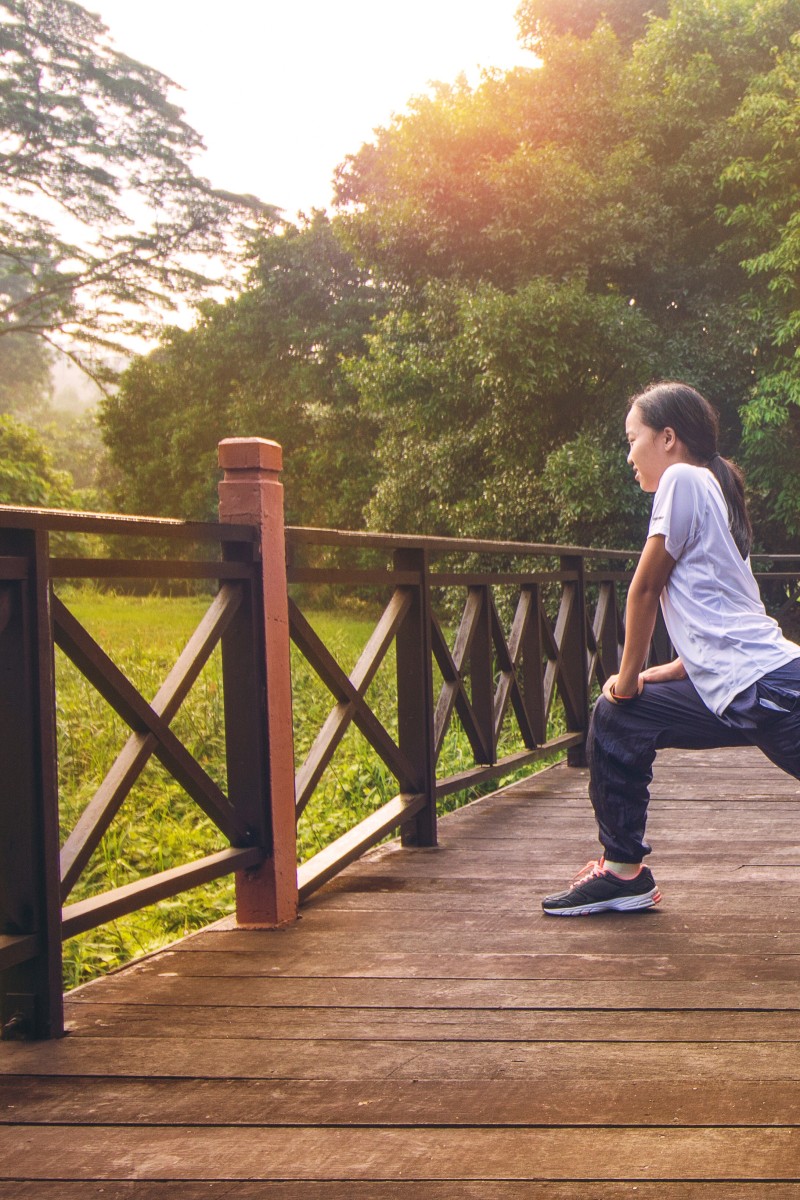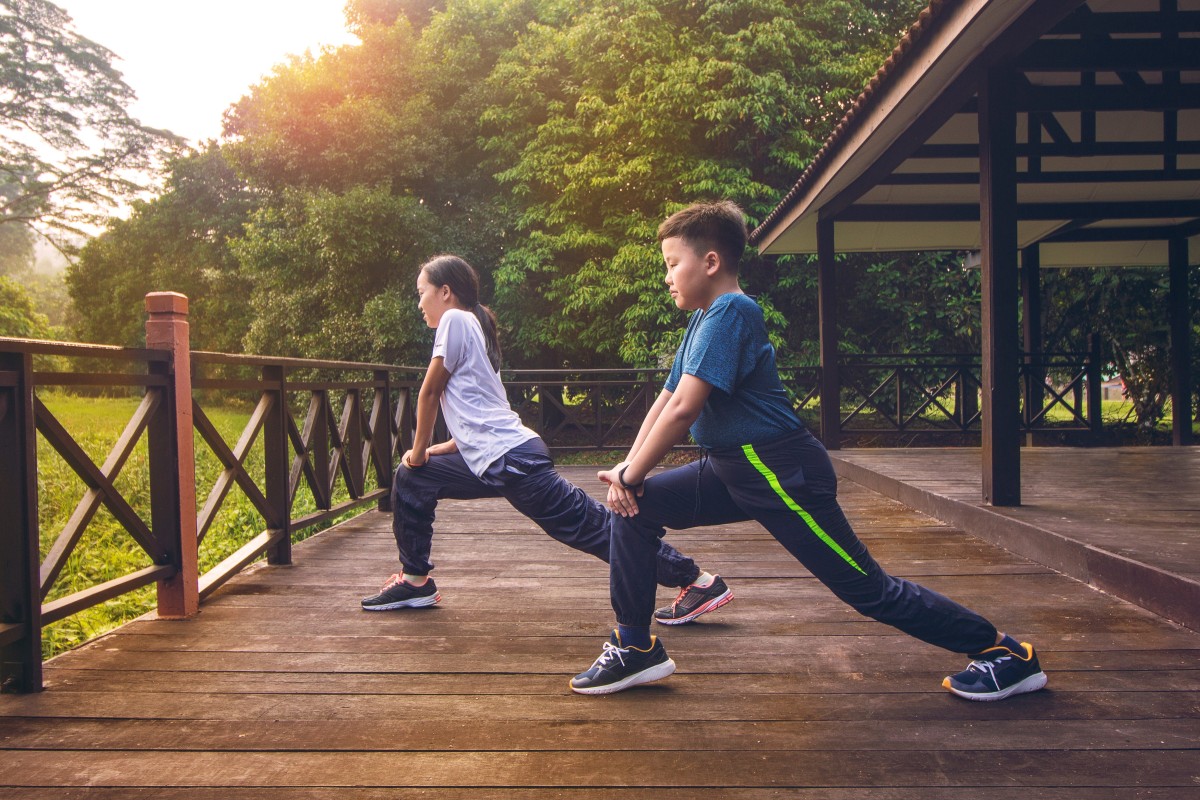
- A Hong Kong personal trainer gives tips on getting started in the gym, rest days and the importance of nutrition
- Don’t buy into common myths, like that all carbs are bad or you need to lift very heavy weights

 Working out can be great for your physical and mental health - but make sure you’re doing it right.
Working out can be great for your physical and mental health - but make sure you’re doing it right.A combination of exercise and a healthy diet is one of the best ways to improve your health. But there are some common misconceptions that need to be addressed.
Young Post spoke to Blake Gurung, 20, a University of Hong Kong student and a certified personal trainer with the International Personal Trainers & Fitness Academy, who offers some valuable tips about healthy workouts and healthy eating.
7 great bodyweight exercises you can do at home
Where should I start if I’m a beginner?
Going to the gym can be daunting at first – especially when you’re faced with a room full of big machines and rows of clanging metal. For beginners, it’s better to start with the machines rather than free weights such as dumbbells or barbells. Because machines are fixed, it’s harder to make mistakes, whereas, with free weights, beginners might not focus on form, or a specific way of performing a movement, which can lead to muscle imbalance or injuries.
Control and balance are very important when lifting free weights. So a fixed machine that guides your movements can be a good starting point, then you can slowly transition into lighter, free weights.
How much rest should I have between workouts?
One rest day during the week should be enough if you are working out regularly.
If you mean during your workout, if you’re focusing on muscle endurance, people usually rest 2-3 minutes between sets. In each set, you want to hit your max, so if you rest only for about 30 seconds, you won’t be able to continue to do the same set of reps with the correct posture. Plus, sufficient rest is needed if you want to lift heavier weights and build your muscles.
Blake Gurung advises people starting to workout for the first time to focus on progress, not ego.
What should I do if I’ve reached a plateau?
A plateau – the stage where little or no progress is being made after a long period of training – is something you can’t avoid. You can’t tell your body to get over it. But you can try taking a break, deloading, or switching up your workout programme. While the other two are self-explanatory, deloading is a technique where you lift 50 per cent lighter than you normally do. After about two weeks, you can start increasing your weight again. When you’re constantly doing the same thing, your body gets used to it and doesn’t realise you want to build muscle.
Should I go to the gym when I’m stressed?
It depends on how you think of the gym. If you don’t really enjoy working out, don’t add to your stress. Scientifically, though, exercise helps release endorphins, a brain chemical which makes you feel more relaxed. So if you think workouts won’t help you, perhaps try cycling with friends or another form of exercise.
Break a sweat with this upper body workout
What are the myths about working out?
People underestimate the importance of sleep. Research shows that people who have eight hours of sleep are able to retain muscle while losing fat when compared to those who sleep a fewer number of hours. People with less sleep are still losing fat but they lose muscle as well. It’s a part of your life that can really affect your workout results.
There is a misconception that carbs are bad. Carbs are quite important and are our main source of energy. People should eat complex carbs (for example, peas, beans, whole grains, and starchy vegetables such as potatoes) two to three hours before working out. Complex carbs give energy for a long period of time.
They can have simple carbs (fruits, milk, and milk products, for instance) 30 minutes before exercise, providing a quick spike in energy. After the workout, have simple carbs to quickly replenish the glycogen that their body has lost. Then they should have complex carbs again.
How to train your core at home
How do I know how much I should be lifting?
Start with a weight you’re comfortable with and try 8-12 reps. If you can do 12 reps easily, obviously that weight is too light for you. Then you can progress from 5kg to 7kg, for example. If you can keep lifting that weight for at least eight reps, that would be a good place to start.
What should my diet look like to accompany my workouts?
Nutrition and fitness are interrelated. Don’t follow diet plans from the internet. Just because something worked for someone doesn’t mean it’ll work for you because we all have very different body compositions. You can try different things for a month or so, and if it works for you, continue. If not, don’t force yourself because it won’t be sustainable.
You’ve got to enjoy your fitness journey. When it comes to dieting, teenagers need to have a balanced diet. Don’t completely cut out unhealthy food at first and then binge on burgers and fries a week later. Add healthy food to your diet before gradually reducing the intake of junk food.
The simple way to stay fit while social distancing
What advice do you have for us?
Let go of your ego – you’re not doing this to impress other people; you’re doing this to be healthier, fitter and happier.
The heavier you go doesn’t mean you’re becoming healthier or will get bigger muscles, especially if your form is bad. Focus on your movement and slowly work your way up the weights.
When gyms reopen after the lockdown in Hong Kong, don’t immediately try to lift the same weights you did before. Just don’t!
Your body probably has been losing muscle during this period so to go all out, all of a sudden can cause an injury.
Teens should slow down a bit – this means starting with lighter weights – and focus on progress instead of ego.
